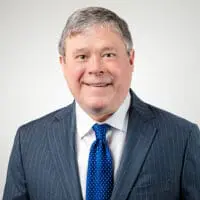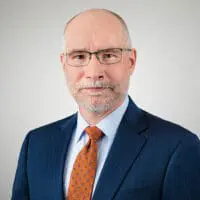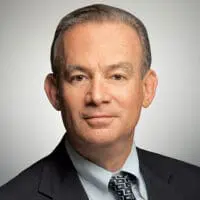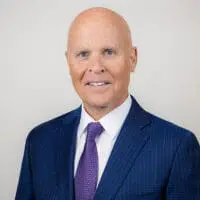Environmental & Natural Resources Law
Coal Exports: The Trump Administration and Western States Take Action to Open Ports for Shipment of Coal
On April 10, 2019, President Donald Trump signed an Executive Order seeking to address permitting and policy obstacles preventing the export of coal and other energy resources through West Coast ports. New port facilities and improvements have been halted or delayed by state, local and tribal governments in California, Washington and Oregon.[1] The Executive Order is the most recent, but certainly not the only, response to efforts to stop interstate shipment and export of coal. The Executive Order requests a report on the economic impacts of blocking exports of domestic coal, oil and gas through the West Coast[2] and focuses specifically on measures to streamline the Section 401 certification process under the Clean Water Act, 33 U.S.C. 1341.[3] Senators from several western states are co-sponsoring legislation to address certification under the Clean Water Act. For its part, Utah, a land-locked state with an active coal mining industry, is supporting public-private partnerships to open new coal ports and transportation infrastructure.
Coal industry concerns regarding Section 401 CWA certification are exemplified by the Millennium Bulk Terminal in Longview, Washington. Governor Jay Inslee has declined to certify the terminal project which is prerequisite to issuance of a 404 permit by the U.S. Army Corp of Engineers. Under the CWA, the state in which the discharge originates must certify that the discharge complies with state water quality standards. The Trump Administration is concerned that the scope of certification has moved beyond water quality to a broader political agenda. In the case of the Millennium Bulk Terminal, denial of certification appears to be due to the Governor’s anti-coal platform. The certification process has allowed Washington to deny (or delay) interstate shipment of coal by rail for transfer to ocean bound ships. State opposition remains despite the Corps’ recent decision to restart work on the federal permitting process.[4]
Actions challenging Governor Inslee’s denial of key permits for the coal terminal have been filed in both state and federal court by project owner, Lighthouse Resources Inc. The National Mining Association and eight land-locked western states, including Utah, have joined the federal action in support of the terminal.[5] These States filed a friend of the court brief to raise Dormant Commerce Clause issues[6] and harm arising from Washington’s improper economic discrimination against interstate shipment of coal for export.[7] Although federal court proceedings were recently stayed by Order dated April 11, 2019, the amicus brief documents harm to the land-locked western states if coal exports are blocked. Wyoming and Montana will suffer significant reductions in state revenues from severance and ad valorem taxes on coal production slated for export and from lease rentals and royalties on state coal lands.[8] Losses resulting from disapproval of the Millennium Bulk Terminal are estimated to “cost Wyoming, Montana, Colorado and Utah ‘over 3,900 jobs annually’ and ‘$18 billion in gross domestic product.’”[9]
The Executive Order calls on the Secretary of Energy and the Secretary of Transportation to report on these and other economic impacts resulting from decisions of Washington and other West Coast states to block coal terminal projects. Under Section 7(b) of the Order, a report is due to the President within the next 180 days to assess the extent to which state, local, tribal or territorial actions have contributed to these impacts.
Specifically as to Section 401 CWA, the Administrator of EPA, in consultation with states and tribes, is requested to address obstacles to siting port facilities resulting from water quality certifications. Section 3 of the Executive Order requires immediate reconsideration of EPA’s 2010 interim guidance titled, “Clean Water Act Section 401 Water Quality Certification: A Water Quality Protection Tool for States and Tribes.” New guidance is to be issued within 60 days of review with revised Section 401 CWA rules due in 13 months.
The land-locked western states are also taking action. Last week, Senator John Borrasso, R-Wyo introduced S. 1087, amending Section 401 CWA to limit the scope of certification to water quality impacts rather than broader policy considerations. A time limit of 90-days is required under the bill for states to notify applicants of additional materials needed to process the certification. Senators from several land-locked states joined Senator Borrasso to co-sponsor the bill, including Senator Steve Daines, R-Mont, Senator Jim Inhofe, R-Okla, Senator Mike Enzi, R-Wyo and Senator Kevin Cramer R-N.D.
The Governor of Utah and the 2019 Utah Legislature are also taking action to secure coal ports on the West Coast. Under S.B.248, sponsored by State Senator Okerlund, some $53 million in grants from the Throughput Infrastructure Fund are prioritized for “bulk commodities ocean terminal projects”. Such projects include a proposed terminal in Oakland, California supported by coal-producing counties in Utah. This terminal has faced opposition by the City of Oakland and the City’s attempt to cancel the contract for terminal facilities is currently in litigation.[10] Utah Governor Gary Herbert has also reached out to Mexico for new port capacity. On October 12, 2018, the Governor’s Office signed a Memorandum of Understanding with the State of Baja California, for expansion of infrastructure needed to export Utah coal via the Port of Ensenada. Utah has also created an Inland Port Authority to, among many things, facilitate the transshipment of coal. Legislation enacted this Session expands the tax and regulatory benefits of the Inland Port beyond Salt Lake City to include coal-producing counties.[11]
Utah and other western coal producing states will be contributing to the report to the President documenting the harms caused by inadequate coal export infrastructure and capacity. These states and the coal industry also welcome reform of the Section 401 water quality certification process through enactment of S. 1087 introduced by Senator Borrasso or by rulemaking under the President’s Executive Order. The State of Utah is not waiting on either of these reforms and is already proceeding to support public-private partnerships to develop and expand coal port facilities on the West Coast.
[1] Coal port proposals which have been delayed and are pending include the Millennium Bulk Terminal in Longview, WA, the Oakland Bulk and Oversized Terminal in Oakland, CA; the proposed coal ports at Gateway Pacific Terminal in Bellingham, WA and Port of Morrow in Boardman, Oregon did not proceed due to permitting delays.
[2] Executive Order on Promoting Energy Infrastructure and Economic Growth, April 10, 2019, Section 7(b).
[3] Ex. Order, Section 3.
[4] Statesman Journal, October 17, 2018, “Army Corps Revives Review of Longview Coal-export Project”.
[5] The land locked States filing the amicus curiae brief were Wyoming, Kansas, Montana, Nebraska, North Dakota, South Dakota, Utah and Oklahoma.
[6] U.S. Const, Art. I Section 8, Clause 3.
[7] Amicus curiae brief, Lighthouse Resources Inc. v. Jay Inslee, No. 3:18-cv-05005, (W.D. WA, March 11, 2019).
[8] Id. Amicus brief at pp. 10-11.
[9] Id. Amicus brief at p.11.
[10] Oakland Bulk and Oversized Terminal, LLC v. City of Oakland, No. 18930929, Cal. Super. Ct., County of Alameda.
[11] HB 433, Inland Port Amendments, signed by the Governor on March 27, 2019.
























